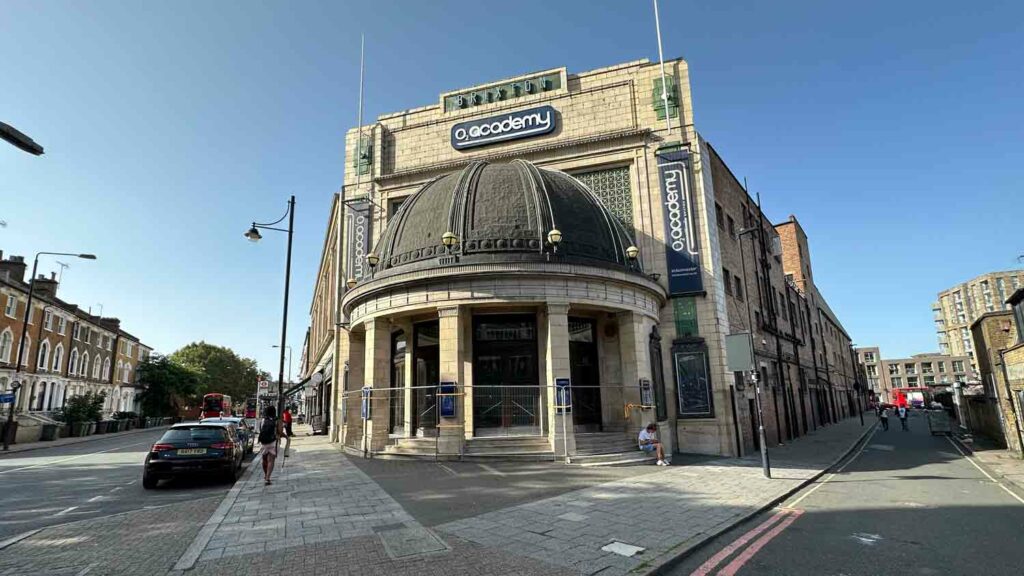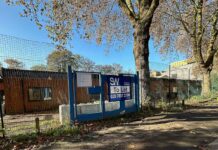
Lambeth council officers would support, in principle, the reopening of the O2 Academy venue in Brixton, the barrister for the council, Horatio Waller, told a licensing sub-committee today (12 September).
The committee was hearing proposals both to allow the venue to open under a new licence with different conditions for the owners, AMG group, and for the licence to be revoked.
The Metropolitan police remain convinced that the licence should be revoked. However, their counsel Gerald Gouriet KC stressed that the police were not trying to close the Academy. “They simply are not,” he emphasised.
Much of the hearing and its documentation has been secret because of the need to avoid prejudicing possible criminal proceedings as a result of the 15 December events.
Licensing sub-committee Cllr Fred Howell chair stressed that the officers’ stance did not mean that re-opeoning was the committee’s decision – which had yet to be made.
Waller said the tragedy of 15 December ought to have never occurred. “There was a failure, or multiple failures, at some point across the licensing system.
“Our thoughts are with the families of the victims and with everyone affected by the trauma of the event. They deserve answers and accountability for what happened.
“Over the course of this year, officers of the council were charged with investigating the causes of the tragedy and then deciding whether to support AMG’s request to reopen the venue under new management enhanced infrastructure and new proposals to strengthen risk assessment and operation.
He said Paul Richards, Lambeth council licensing officer, who was sitting next to him, led that process with the support of senior officers, including the assistant director, public protection assurance and regulatory services, and the council’s legal team.
His and Mr Richards’ role “is to present a considered opinion to the committee, independent from the views of AMG and also the police.
“The key issues are whether AMG should be permitted to reopen the premises and on what terms.
“The initial position of the responsible authority, my client, was one of support for the Metropolitan police who support revocation of the licence.
“Since then, officers of Lambeth have carefully scrutinised the available evidence for the causes of this tragedy.
“This included a finetooth-comb analysis of AMG’s evidence regarding those causes. Mr Richards presented his opinions in a full 21-page report to the committee.
“At that time, there remained sufficient residual concerns that the authority remained in support of the police.
“Some of Mr Richards’ conclusions cannot be stated in public, nor can his detailed reasoning.
“Yesterday there were references in Mr. Kolvin’s [counsel for AMG] public submissions to parts of Mr. Richard’s report, but only the parts that are publicly available.
“What the public did not hear was Mr. Richards’ analysis of the causes of the tragedy. We have not shied away from our duty to identify what went wrong and where responsibility lies,” said Mr Waller.
“This is necessary to ensure lessons can be learned and the measures necessary to enable the premises to reopen can be taken without a repeat of the tragedy.”
Paul Richards said AMG had assessed the risks associated with the 15 December concert at four or five – the highest levels.
They had highlighted the risk of door rush. While this reflected well on AMG, he said, “it was not sufficient for me to be satisfied that AMG managed these premises properly in accordance with the licensing objectives”.
He had watched CCTV of the night provided by AMG. “What I saw showed me that the crush occurred after crowd control measures failed with the foreseeable consequences that disorder was likely to occur.
“The main doors of the premises were breached on multiple occasions before the fatal crush.
“I set out a detailed conclusion and reasoning within my report that has been shared with the committee in full, but can only be made public subject to redactions.”
He concluded that AMG had failed on the night of 15 December in their duty to uphold licensing objectives which related to public safety and the prevention of crime and disorder.
Horatio Waller said it was fair to say that “AMG have performed a complete overhaul of their approach towards risk assessment and their systems for crown control.
“Lambeth officers attended meetings in the spring where they inputted into measures when they were at a formative stage and in accordance with the timetable for this hearing. The full extent of the measures and their reason justification was shared with officers on the 16 August.”
Waller said these measures had been independently audited by consultants and commended as comprehensive and robust.
“The recommendation of independent consultants, in particular, has given officers confidence to work with a AMG to help develop their proposals.
“Yet further, officers sought to scrutinise the measures for their sufficiency and workability and to ensure that they are fully complied with going forward.
“AMG is being put under full scrutiny at the level of its management of the O2 Academy and at an institutional level.
“My officers’ approach has been to communicate legitimate and evidence-based concerns to see how, if at all, they can be addressed through further measures and, as we would expect, AMG have been constructive and attentive to the issues that our team has raised, particularly within Mr Richards’ report,” said Waller.
Consequently, arrangements had been made for those measures to be strengthened and, during the course even of this hearing, arrangements have been strengthened yet further in response to my client’s concerns.
“The result is that my client, the responsible authority, now, in principle, supports the reopening of the venue on the basis of new conditions.”
Waller said a revised system for entry the venue has been developed.
“Officers have seen plans showing the nature and extent of that system and a report by consultant, Momentum, that produces modelling to demonstrate the robustness of that system to manage a crowd across a variety of scenarios.
“This is much more comprehensive, prescriptive and controlled than the system that existed on 15 December.
“The tragedy likely would not have occurred if that system was in place.
“There is to be an independent audit of the operation of that system as a check to ensure it operates as it should.”
Waller said there is a need for a separate consent to enable barriers to be positioned on the highway as part of the new licensing conditions through the medium of a temporary traffic regulation order.
Waller said there would be a standardised process of risk assessment in respect of each event before the venue agrees to host it.
“We entirely agree with the proposition underlying a question from the chair to AMG yesterday that this new process should not lead to a tunnel vision situation where risk is associated with [music] genre or race,” he said.
Waller said that things can always go wrong, as on the night of 15 December. He said the public requires reassurance that there is a backstop in place to deal with crowd disorder, were it to recur.
“Officers of Lambeth have given careful thought to what that procedure should look like. AMG had pointed to a new proposed front door emergency procedure and a venue emergency operations plan as guiding the fallback. Lambeth have scrutinised those documents and consider that they, as standalone documents, represent best practice.”
In addition to these documents, officers had already highlighted the importance of the new show stop policy.
“It’s expected that that policy will set the parameters for deciding whether to stop the show to enable a crowd to disperse … Of course, the ultimate backstop is the right of the police and Lambeth officers to call a further review in future.”






